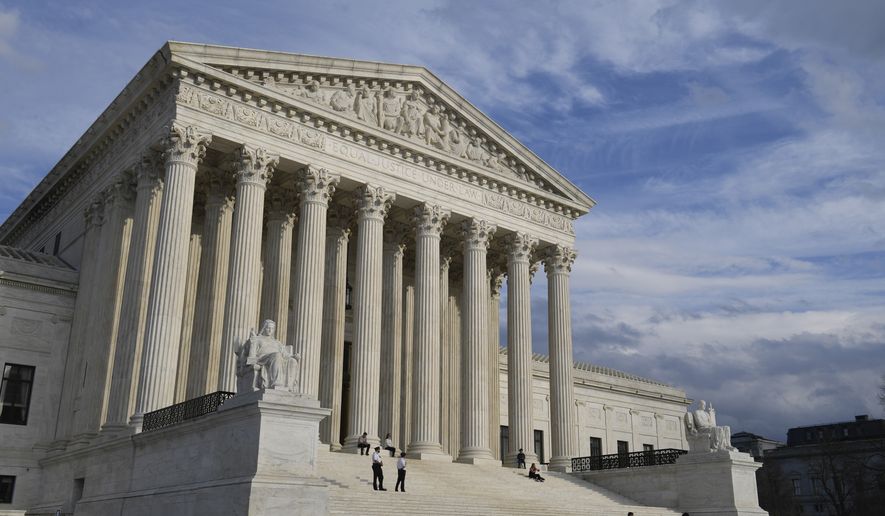The Supreme Court declined Monday to hear a North Dakota case involving a lawyer’s required bar membership, but those trying to have the practice overturned may soon get another crack at it.
Arnold Fleck filed a lawsuit in 2015, contending that North Dakota’s requirement that lawyers be members of the state bar association to practice there infringed on his First Amendment rights because bar dues funded political work with which Mr. Fleck may disagree. The 8th Circuit Court of Appeals ruled against Mr. Fleck in August.
Some 30 states have similar requirements.
The case has divided conservatives, with some arguing the high court should hear it to send a message of employment liberty, while others urging the justices to wait for a broader case out of Wisconsin now in the 7th Circuit.
In Jarchow v. State Bar of Wisconsin, now wending its way through the 7th Circuit Court of Appeals, some legal analysts believe the justices would have a clean slate to extend the reasoning behind its Janus decision, which said that public-sector employees cannot be forced to pay union dues.
The Wisconsin Institute for Law and Liberty is leading the case. Plaintiff Adam Jarchow is a lawyer and former state assemblyman. He and another lawyer contend the state cannot mandate a lawyer seeking to practice in Wisconsin be a dues-paying, bar association member.
“Yet the Bar is an advocacy organization that not only lobbies but takes many public positions on political, governmental and societal topics,” the Institute wrote. “Members are forced to support all those positions regardless of whether they agree with them. We believe that after the U.S. Supreme Court’s Janus decision striking down mandatory fees for public unions, mandatory state bars are no longer justifiable.”
Such topics include tort or judicial reform, abortion coverage in health insurance, the death penalty and other political matters, according to plaintiffs in several cases.
The Wisconsin case began after the Supreme Court’s 2018 Janus decision. Since the 5-4 ruling, conservatives have sought to extend its reasoning to other dues-paying labor organizations while liberals have tried to protect unions’ financial bases wherever possible.
The high court had previously asked the appeals court to reconsider Mr. Fleck’s suit in light of Janus, but the judges said, “Janus does not alter our opinion.”
Prior to Janus, the court’s Beck decision had allowed union members to claw back the portion of their dues that a union spent on “political” matters, and Mr. Fleck argued that a slice of the North Dakota bar dues used for political activity should be optional rather than requiring members to opt out.
Monday’s decision to not hear the case leaves North Dakota’s current system intact.
Mr. Fleck’s attorneys with the Goldwater Institute, a conservative outfit based in Arizona, did not return phone calls Monday seeking comment.
• James Varney can be reached at jvarney@washingtontimes.com.




Please read our comment policy before commenting.